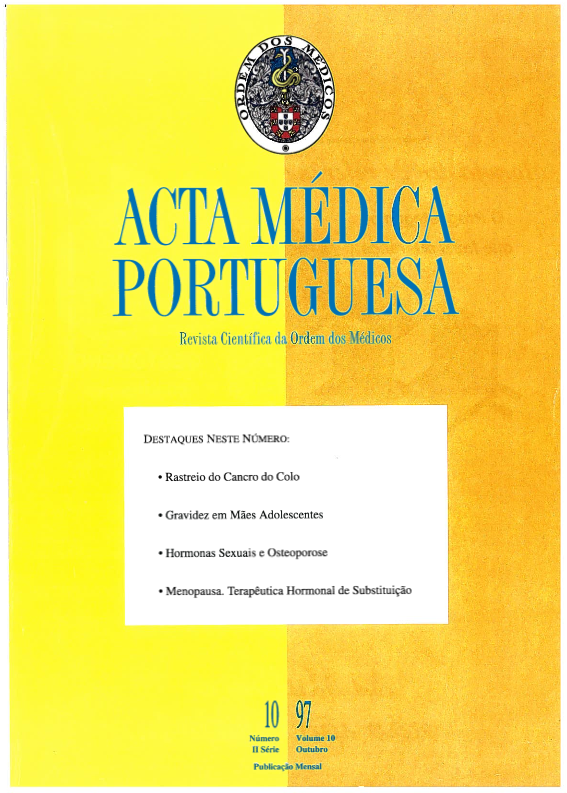Terapêutica hormonal de substituição e cancro da mama. 1. A terapêutica de substituição aumenta o risco de cancro da mama?
DOI:
https://doi.org/10.20344/amp.2473Resumo
It has been extensively demonstrated that hormonal replacement therapy (HRT) constitutes an effective treatment of menopausal symptoms. There is also substantial epidemiological evidence suggesting that this treatment protects women against cardiovascular disease and osteoporosis. The possible increase in breast cancer risk appears as its principal disadvantage and is often invoked as the reason why both doctors and patients decline this therapy. In this paper we review the current knowledge on HRT and breast cancer risk. A computerised bibliographical search (MEDLINE) of literature in the English language published in the last 15 years was conducted, followed by a manual search of references. We focused our attention on four main questions: 1) Does HRT increase the risk of breast cancer? 2) Are different doses and drugs associated with different risks? 3) What effect on risk have the association of a progestin does? 4) Does HRT increase the risk of breast cancer in women with major risk factors for the disease? Overall, epidemiological studies suggest that women who have used HRT before have a slightly higher risk of breast cancer than those who have never used it, in most studies not exceeding 10%. The use of HRT for less than 5 years does not seem to be associated with increased risk, while some studies have shown relative risks in the order of 1.20-1.30 with therapies exceeding 10-15 years in duration. Different doses of conjugated equine estrogens do not seem to be associated with different risks of breast cancer. Data on the risk of other estrogen preparations is scarce and far from conclusive, but the majority of studies suggest a similar risk to that of conjugated estrogens. Evidence on opposed HRT is also scarce and contradictory. A substantial body of evidence exists to suggest that HRT in women with benign breast disease does not increase the risk of breast cancer. Data on HRT in women with a family history of breast cancer is inconclusive; some studies have found an increased risk with this therapy, while others have found no difference. It has to be taken into account that current knowledge on this subject is based on observational studies subject to numerous bias, evaluating dissimilar populations and mostly conducted with currently less favoured HRT regimens, such as unopposed conjugated estrogens. Studies on the currently prevailing HRT regimens are urgently needed.Downloads
Downloads
Como Citar
Edição
Secção
Licença
Todos os artigos publicados na AMP são de acesso aberto e cumprem os requisitos das agências de financiamento ou instituições académicas. Relativamente à utilização por terceiros a AMP rege-se pelos termos da licença Creative Commons ‘Atribuição – Uso Não-Comercial – (CC-BY-NC)’.
É da responsabilidade do autor obter permissão para reproduzir figuras, tabelas, etc., de outras publicações. Após a aceitação de um artigo, os autores serão convidados a preencher uma “Declaração de Responsabilidade Autoral e Partilha de Direitos de Autor “(http://www.actamedicaportuguesa.com/info/AMP-NormasPublicacao.pdf) e a “Declaração de Potenciais Conflitos de Interesse” (http://www.icmje.org/conflicts-of-interest) do ICMJE. Será enviado um e-mail ao autor correspondente, confirmando a receção do manuscrito.
Após a publicação, os autores ficam autorizados a disponibilizar os seus artigos em repositórios das suas instituições de origem, desde que mencionem sempre onde foram publicados e de acordo com a licença Creative Commons









